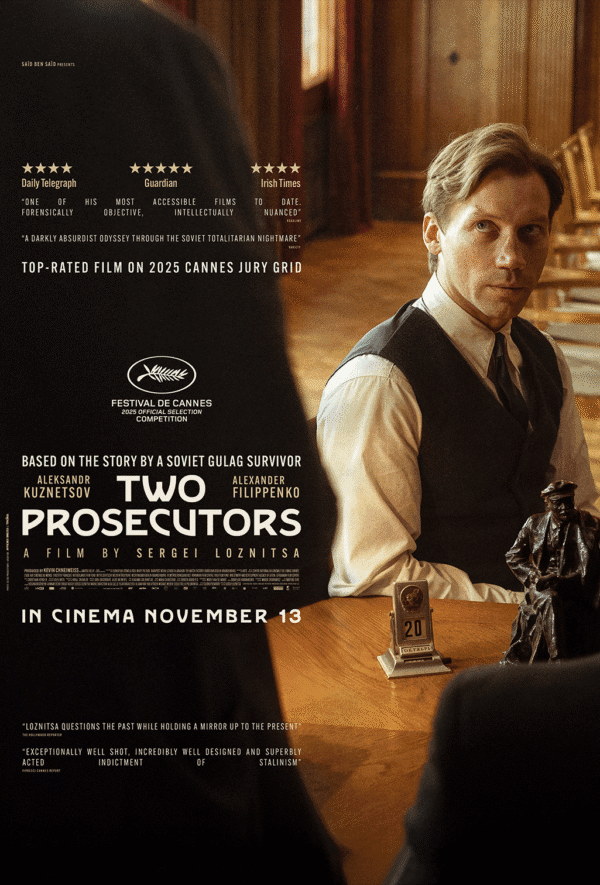PG, 117 minutes
4 Stars
Review by © Jane Freebury
It’s ironic that a drama set during a time of brutal political repression gets a PG rating in our film classification system. Strictly speaking, the rating is appropriate. The violence in this forensic study of repression is minimal. Yet, the battered and emaciated figures in frame and the brooding spaces that they inhabit tells the story of a regime that ate its own.
Austere from the word go as a heavy padlock unlocks the gate at a city prison and a group of inmates, already broken, shuffle in. The figures are coughing, they are haggard and emaciated. There is a way in but never, we suspect, any way out.
Within the prison for political dissidents the sense of dread is intense, by turns banal and disturbing. During the trips along darkened corridors, through the grating iron gates, past the hardened faces of guards who run the joint. Sometimes, the system’s lugubrious enforcers seem vaguely comical. Those who carried out the instructions of the tyrant Joseph Stalin were automatons, after all.
Two Prosecutors is set in Soviet Russia in 1937, when the political purge in the regime under Stalin was at its most deadly. Among the hundreds of thousands of Soviet citizens, critics or suspected dissidents, who were disappeared by the state was one Georgy Demidov, a physicist. He wrote the novella on which this film by writer-director Sergey Loznitsa is based.
An inside story of a regime that ate its own
It is the story of a young lawyer, an honest young Bolshevik just three months into his job as a public prosecutor in the Russian industrial city of Bryansk. Prosecutor Kornyev (Russian Ukrainian actor Aleksandr Kuznetsov) has received a note scrawled in blood that has been smuggled out of the city prison and determines to interview its author. He is only doing his job, but it does not seem to be a good move.
As an innocent within the system in which he works, the newly graduated Kornyev is a beardless boy. A virgin in every sense despite that broken boxer’s nose. Kuznetsov’s expressive features work brilliantly in his role.
After managing to meet with imprisoned dissident Stepniak (Aleksandr Filippenko), Kornyev heads to Moscow to plead his case, and the case of the multitudes of others falsely imprisoned, with the system’s chief prosecutor (Anatoliy Beliy). Another implacable bureaucrat who appears just as ruthless as the prison governor.
A companion piece for Orson Welles’ The Trial
Kornyev’s fateful trip to Moscow is depicted with a modicum of black humour when he crosses paths with a former student colleague, when he encounters a man trying to find his way out and when he is admonished for not knowing the exact location of the office to which he was headed. And as we become aware of his fate on the journey home.
The tonal precision and elegance of the film’s austere aesthetic are beautifully balanced. It is not surprising to read that Loznitsa trained as a mathematician.
True to the 1930s, Two Prosecutors is shot in monochrome with a barely a hint of colour. The boxy frame, almost square, that featured at the time, fits perfectly with its story of incarceration.
This austere journey deep into the core of a ruthless bureaucracy that is concerned with nothing but maintaining its grip on power, is a reminder of the spectre of totalitarianism. It could be a companion piece to Orson Welles’ film from 1962, The Trial in which another individual is swallowed up by the system.
Jane’s reviews are also posted on Rotten Tomatoes
